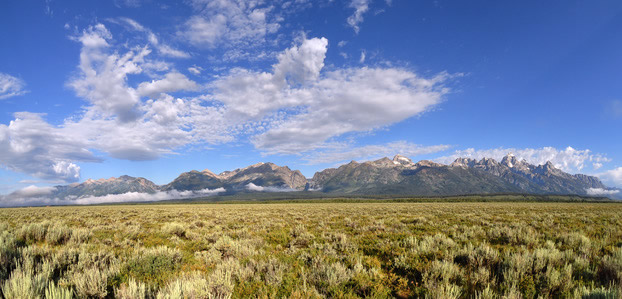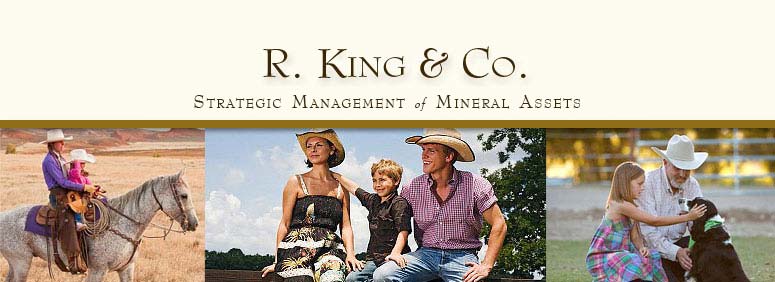
R. King & Co. grew at its fastest pace in 2018, protecting and maximizing its clients’ oil and gas interests.
Our mineral managers—David Nolen, Steve Cranford, and Richard King—expanded services in 2018 to new clients in Wyoming, Utah, Montana, and Colorado with a stable of expert landmen, legal counsel, bookkeepers, and reservoir engineers.
The Permian in West Texas and Oklahoma’s SCOOP/STACK shale basins proved to be the most active for our clients. Although culturally averse to selling minerals, we negotiate purchase offers at the request of clients and, in one case, doubled the offer on a 50-acre track to a $1MM sale.
We did a lot of work in the Permian performing chain of title runsheets on clients’ unleased minerals. After defining each tract’s mineral ownership, we proactively marketed them for lease, generated competitive interest, and negotiated favorable lease terms with new income streams for our clients.
It’s very rewarding to improve lease terms and generate significant income for families. We also negotiated lease ratifications and reviewed and corrected Division Orders. And we are always watchdogging operators to ensure our clients receive correct payments.
The DJ Basin in Colorado also proved to be an active area. We consolidated four neighboring clients to strengthen their power in proactively marketing and negotiating the most favorable lease terms for them. This proved to be a winning strategy in a challenging state with “forced pooling laws” that favors operators over mineral owners. This results in less competitive lease terms and bonus payments to mineral owners. However, we prevailed. One of the most respected oil and gas law firms in Denver who advocates for mineral owners, described R. King & Co.’s leases negotiated on behalf its clients—as the most favorable lease terms and highest bonus payments it has every seen in the DJ Basin. We think our Texas experience translated well in this challenging environment.
We always hear interesting stories on how clients received their mineral ownership. Often they are inherited from grandparents. Many times we hear how royalty income “Saved our family from the poor house”, “Saved the ranch”, “Paid our college education”, or, “Started the family business”. In the chain of title records in many county courthouses in America, it’s not unusual for us to see tiny conveyances of family minerals during The Depression and Dust Bowl of the 1930s. Farmers and ranchers paying their grocery bills to local merchants in mineral parcels.
We often wonder how America would have fared the past 100-years had minerals been state-owned, rather than privately owned? The United States and Canada are the only two countries in the world that allows its minerals to be privately owned. And permits its citizen mineral owners to receive income from leasing and extraction activities. Certainly our middle class emerged with the help of this enormous income to our private citizens and families.

